Brett - A history of psychology. / Vol. I Ancient and Patristic
Here you can read online Brett - A history of psychology. / Vol. I Ancient and Patristic full text of the book (entire story) in english for free. Download pdf and epub, get meaning, cover and reviews about this ebook. City: London, year: 2014,1912, publisher: Taylor and Francis;Routledge, genre: Science. Description of the work, (preface) as well as reviews are available. Best literature library LitArk.com created for fans of good reading and offers a wide selection of genres:
Romance novel
Science fiction
Adventure
Detective
Science
History
Home and family
Prose
Art
Politics
Computer
Non-fiction
Religion
Business
Children
Humor
Choose a favorite category and find really read worthwhile books. Enjoy immersion in the world of imagination, feel the emotions of the characters or learn something new for yourself, make an fascinating discovery.
- Book:A history of psychology. / Vol. I Ancient and Patristic
- Author:
- Publisher:Taylor and Francis;Routledge
- Genre:
- Year:2014,1912
- City:London
- Rating:5 / 5
- Favourites:Add to favourites
- Your mark:
- 100
- 1
- 2
- 3
- 4
- 5
A history of psychology. / Vol. I Ancient and Patristic: summary, description and annotation
We offer to read an annotation, description, summary or preface (depends on what the author of the book "A history of psychology. / Vol. I Ancient and Patristic" wrote himself). If you haven't found the necessary information about the book — write in the comments, we will try to find it.
Brett: author's other books
Who wrote A history of psychology. / Vol. I Ancient and Patristic? Find out the surname, the name of the author of the book and a list of all author's works by series.
A history of psychology. / Vol. I Ancient and Patristic — read online for free the complete book (whole text) full work
Below is the text of the book, divided by pages. System saving the place of the last page read, allows you to conveniently read the book "A history of psychology. / Vol. I Ancient and Patristic" online for free, without having to search again every time where you left off. Put a bookmark, and you can go to the page where you finished reading at any time.
Font size:
Interval:
Bookmark:

Muirhead Library of Philosophy
A HISTORY OF PSYCHOLOGY

MUIRHEAD
Muirhead Library of Philosophy
PHILOSOPHY OF MIND AND PSYCHOLOGY
In 17 Volumes
I | The Nature of Thought (Vol I) | Blanshard |
II | The Nature of Thought (Vol II) | Blanshard |
III | A History of Psychology (Vol I) | Brett |
IV | A History of Psychology (Vol II) | Brett |
V | A History of Psychology (Vol III) | Brett |
VI | The Subject of Consciousness | Evans |
VII | Imagination | Furlong |
VIII | Mental Images | Hannay |
IX | Nature, Mind and Modern Science | Harris |
X | Hypothesis and Perception | Harris |
XI | The Problems of Perception | Hirst |
XII | Memory | Smith |
XIII | Analytic Psychology (Vol I) | Stout |
XIV | Analytic Psychology (Vol II) | Stout |
XV | Philosophy and Psychical Research | Thakur |
XVI | Enigmas of Agency | Thalberg |
XVII | Contemporary Psychology | Villa |
A HISTORY OF PSYCHOLOGY
Ancient and Patristic
Volume I
GEORGE SIDNEY BRETT

First published 1912 by Routledge
Published 2013 by Routledge
2 Park Square, Milton Park, Abingdon, Oxon OX14 4RN
711 Third Avenue, New York, NY, 10017, USA
Routledge is an imprint of the Taylor & Francis Group, an informa business
All rights reserved. No part of this book may be reprinted or reproduced or utilized in any form or by any electronic, mechanical, or other means, now known or hereafter invented, including photocopying and recording, or in any information storage or retrieval system, without permission in writing from the publishers.
The publishers have made every effort to contact authors/copyright holders of the works reprinted in the Muirhead Library of Philosophy.
This has not been possible in every case, however, and we would welcome correspondence from those individuals/companies we have been unable to trace.
These reprints are taken from original copies of each book. In many cases the condition of these originals is not perfect. The publisher has gone to great lengths to ensure the quality of these reprints, but wishes to point out that certain characteristics of the original copies will, of necessity, be apparent in reprints thereof.
British Library Cataloguing in Publication Data
A CIP catalogue record for this book is available from the British Library
ISBN 13: 978-0-415-29608-3 (hbk)
A HISTORY
OF
PSYCHOLOGY
ANCIENT AND PATRISTIC
BY
GEORGE SIDNEY BRETT, M.A. (OXON)
LONDON
GEORGE ALLEN & COMPANY, LTD.
RUSKIN HOUSE
44 & 45 RATHBONE PLACE, OXFORD STREET
1912
All rights reserved
PREFACE
T HE development of psychological theory is intimately connected with the development of philosophy. This is perhaps the reason why there have been comparatively few attempts to write an independent account of this department of knowledge, and those few are defective in method and execution. Those who have undertaken to treat ancient psychology have, in many cases, used the term psychology to cover what properly belongs either to general philosophy or to metaphysics, a fault very obvious in the otherwise admirable labours of Chaignet, for example. Excluding the psychological parts of histories of philosophy and those accounts of the development of psychology which include ethical, metaphysical, and logical subjects, the only genuine history of psychology known to me is the work of Siebeck. Praise of this work is now superfluous; for a quarter of a century it has remained unrivalled in excellence of method, in learning, and in sound judgment; every writer has owed to it a debt of gratitude, and none more than myself.
As the charge of irrelevance has been brought against other works on psychology, it is perhaps necessary to explain the presence in these pages of material that cannot be called psychology in the strict sense of that term. The inadequacy of the term has been noticed elsewhere (selecting, and the principle in grouping, the data. The nature of man is regarded as forming the centre of three great lines of interest, namely, the study of human activities as the psychologist sees them, the study of human life as the doctor looks at it, and the growth of systematic beliefs as reflected in philosophy and religion. The union of these in their historical development seemed likely to yield what might be called an autobiography of the human mind.
It is, of course, impossible to combine a comprehensive account of so large a subject with the detailed minuteness proper to monographs on special periods; excision and selection has been necessary throughout. The data included may appear to some badly selected; others will desire things that have been purposely omitted; in view of this it is permissible to indicate what method has been consciously pursued. The main emphasis is laid on what may be called psychological data in the strict sense; around these data are grouped such theories as diverge from the phenomena of consciousness to derivative doctrines of the souls antecedents, environment, and future possibilities. The relevant parts of medical and religious theories are regarded as supplementing psychology in two different directions; the treatment of them is subordinated to psychology as the main theme. The instructed reader will understand how manifold have been the temptations to digress. Anthropology, dsemonology, and other departmental studies have presented opportunities for irrelevancies more attractive and entertaining than the main theme. The temptations have been resisted if not with good judgment at least with good intentions.
As the subject of this history exceeds the limits of psychology in the narrow sense, I have found ample justification for the consideration of Eastern theories which would find no place in a history of psychology confined to purely scientific data. In this part of the work I have had to rely on translations and the statements of others, being ignorant of the languages of the ancient Eastern literatures. Fortunately such scholars as Max Mller and his collaborators, in producing versions of the Sacred Books of the East, have made accessible the required data. As the object of this history is to exhibit the evolution of ideas about the soul, Eastern ideas are by no means irrelevant. They have influenced Western theories in the past, and the world to-day turns to the East in its speculations almost as much as it turns away in its science or its practice. Amid much fruitless revival of empty phrases there is a useful tendency in this; it relieves the painful insistence on motions and mechanism which is our heritage from the eighteenth century. But there is urgent need for a clearer understanding of many ideas, particularly those attributed to Indian sages; for a little knowledge would undermine once for all the fantastic doctrines built on stray quotations from Indian writings. Such ideas as are found in the Vedanta, for example, usually suffer depreciation or exaggeration. In reality the Indian traditions seem to say well what they have to say; both as a phase of history and as a contribution to knowledge they express significant points of view which may be given sympathetic attention without fanatical partisanship. The tendency towards mysticism makes them an abomination to some, while to others it is a recommendation or even a fatal attraction. A recent writer seems to me to have stated the case for these and similar writings in words that exactly fit the present stage of our development. We in our time are perhaps too much inclined to limit the powers of the human spirit to the world of sense and observation. The slackening hold on faith in a spiritual world and a higher intuition may well be visited by the proper Nemesis, in the darkening of the vision, whether as religious faith or artistic inspiration. The dream of an earthly paradise enriched with every sensuous gratification by a science working in bondage to mere utility may have serious results for the spiritual future of humanity. It may need a bitter experience to dispel the gross illusion; yet men may once more come to believe with Plutarch that, as it were, at the back of every soul there is an opening to the divine world from which yet may come, as of old, the touch of an unseen hand.
Next pageFont size:
Interval:
Bookmark:
Similar books «A history of psychology. / Vol. I Ancient and Patristic»
Look at similar books to A history of psychology. / Vol. I Ancient and Patristic. We have selected literature similar in name and meaning in the hope of providing readers with more options to find new, interesting, not yet read works.
Discussion, reviews of the book A history of psychology. / Vol. I Ancient and Patristic and just readers' own opinions. Leave your comments, write what you think about the work, its meaning or the main characters. Specify what exactly you liked and what you didn't like, and why you think so.

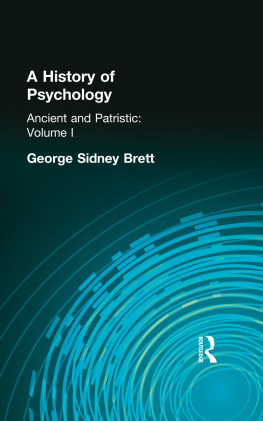
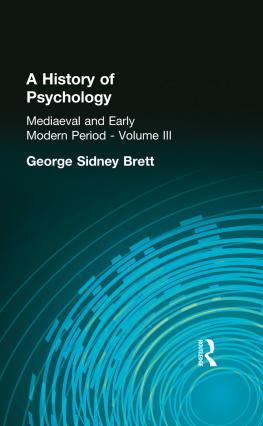
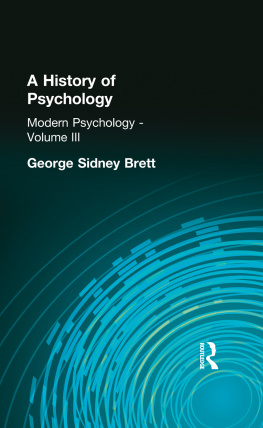
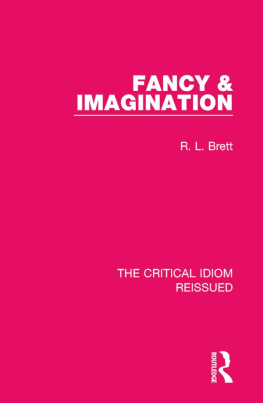



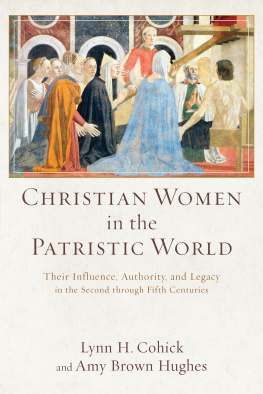


![Simon Brett [Simon Brett] - Mrs. Pargeter’s Pound of Flesh](/uploads/posts/book/142156/thumbs/simon-brett-simon-brett-mrs-pargeter-s-pound.jpg)
![Simon Brett [Simon Brett] - Mrs. Pargeter’s Point of Honour](/uploads/posts/book/142155/thumbs/simon-brett-simon-brett-mrs-pargeter-s-point.jpg)
![Simon Brett [Simon Brett] - Mrs. Pargeter’s Package](/uploads/posts/book/142153/thumbs/simon-brett-simon-brett-mrs-pargeter-s.jpg)